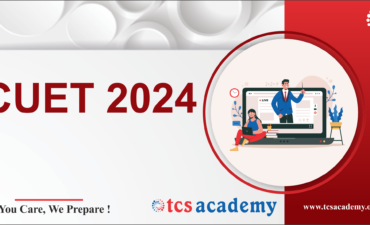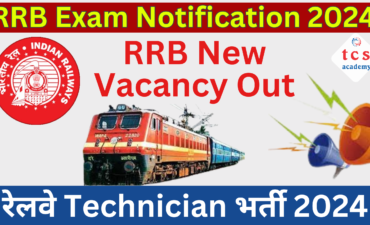” Some mistakes, to avoid while preparing for the civil services Exam “
IAS Topper Ravi Meena(2016)
Share his Study Plan and Stretegy.
The challenging Civil Services Examination (CSE) conducted by the Union Public Service Commission (UPSC) is spread over an entire year, divided into three extremely competitive stages, in which anything can go wrong at any stage leading to one’s failure.
This must sound scary to over seven lakh aspirants who will be sitting for the exam. While beginning their preparation, many students have partial knowledge about the exam, its nitty-gritties and preparation strategy. Confused by half knowledge and filled with fear, many of the students start believing in myths floating around. Here are some things aspirants should avoid.
Myth: IAS officers/aspirants should know everything about every topic/subject under the sun.
Reality: No, they do not. But since this is a generalist exam, they are supposed to be generally well read, with a balanced outlook towards issues. Moreover, the syllabus of the exam is huge, covering many subjects. So, an IAS aspirant is generally much more aware than others. What is required is a general understanding of the topic and conceptual clarity. The exam does not require one to be an expert in a topic, rather, aspirants should have general awareness and analytical skills.
Myth: I need to remember a lot of facts to clear CSE.
Reality: No, the exam does not test factual knowledge at all. It tests your understanding, conceptual clarity and analytical skills. However, some facts are considered to be the basis of building perspective, which are important to know. So, you should know a few basic facts such as size of the GDP, demographic data, and so on, but it will be easier to remember them once you understand their significance.
Myth: You need to be a topper throughout to clear the exam.
Reality: Although being a topper helps, it does not guarantee you success in this exam. What is required is general awareness, logical reasoning and good writing skills. If you can develop those, you can clear this exam even if you had a second division in Class X or XII. Yes, you might have to explain in the interview as to why you scored less, but it is not held against you if you have a valid reason.
Rahi Meena Also said strategy about civil services Exam
Myth: You cannot clear the exam without the help of a coaching institute.
Reality: Wrong. In the new era, one can make use of various great resources, such as mobile apps and websites. Coaching centres do have a study plan that they enforce on you, but it cannot guarantee success and they charge an astronomical fee, which many aspirants cannot afford. It is important to first understand where you stand and how much you need to improve. Once you know your study objectives, you can decide between self-study or joining a coaching institute.
Myth: Writing skills cannot be improved, so one should read now and directly write in the exam hall.
Reality: This is one of the biggest mistakes one can make. Writing at home and writing in the exam hall are two entirely different scenarios. There is so much pressure in the exam hall that you can find it hard to think about new points. So, if you do not practice, you would not be able to finish the paper on time. Writing skills improve slowly, hence, it is more important that you practice regularly. Consistent writing practice helps in honing articulation which leads to better expression, and, ultimately, better marks.
Myth: You must attempt more than 90 questions to clear prelims.
Reality: This is not true. Another myth that has been made popular by some of the ‘hacks’ and ‘shortcuts’ floating in the market is that if you attempt more questions it is easier to get more marks. It doesn’t work like that. To attempt more number of questions correctly, one needs to have a certain level of “intuition”. And that level of intuition comes from years of reading and internalising information which helps in creating links between topics.While a well-read person may attempt a disproportionately large number of questions and still manage to get them correct, not everyone can do it. So, one should attempt only those questions one is reasonably sure of, and not because someone gave you a hack. You need to practice and figure out a strategy that works well for you.
Myth: One needs to study 16 hours a day to clear.
Reality: Let’s face it. No one can study for 16 hours per day for an extended period and not crash. Moreover, it is not the hours that matter, rather the quality. So, you have people who clear by studying for four to five hours a day alongside a job, and people who have studied for 12 hours per day continuously for months. You must find your balance.
Myth: You need to read many books on a single topic to gain absolute “mastery” over the subject.
Reality: First, “mastery” over any subject is a super ambitious target, in case of UPSC exam. Second, it is always better to understand a single book in great depth rather than reading multiple books to understand a topic. Also, even though you have read and understood something, it takes time to get internalised as you are going to study many new topics. If you don’t make notes and revise, you might not be able to retain them effectively. If you genuinely understand a topic and want to expand your knowledge and/or build more perspective, reading more books can certainly help.
Myth: One must read standard books from cover to cover and make notes on every topic in the syllabus.
Reality: Absolutely not. Apart from NCERTs and some books, nothing is required to be read cover to cover. Though reading and acquiring knowledge is almost always helpful, it is far better to adopt a topic-wise approach. Break down the syllabus in keywords and try to cover them from relevant sources and books. Also, making notes is important. But they shouldn’t become an end-in-themselves. They should aid in your understanding and help in effective revision. Making a mind map is far better, and so is scribbling on the margins, than making traditional notes.
To sum up, we know you face a daunting task. But we hope that you’ll enjoy the learning experience instead of becoming anxious and burning out. Focus on the mantra of “Read, Revise, Internalise.” It is also important not to blindly follow any advice that is doled out to you, including this one.
By:Vikram Ghosh : Expert /writer
career counselor in BBA University Lko
The writer is civil services Expert , Also Assistant in UPSC exam preparation community Lucknow
Guest Ethics Faculty in tcs academy




